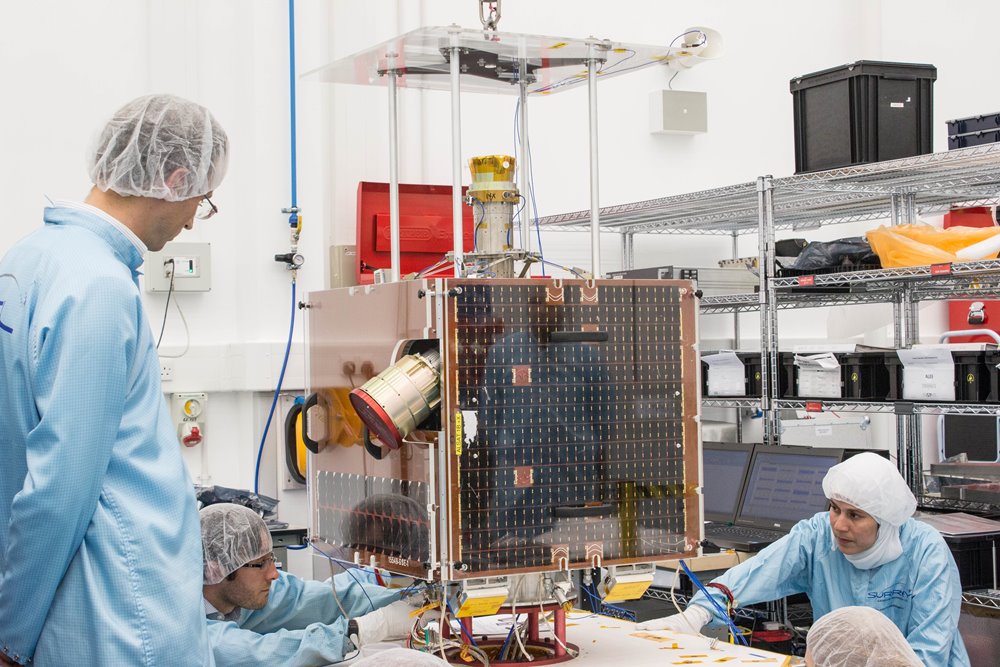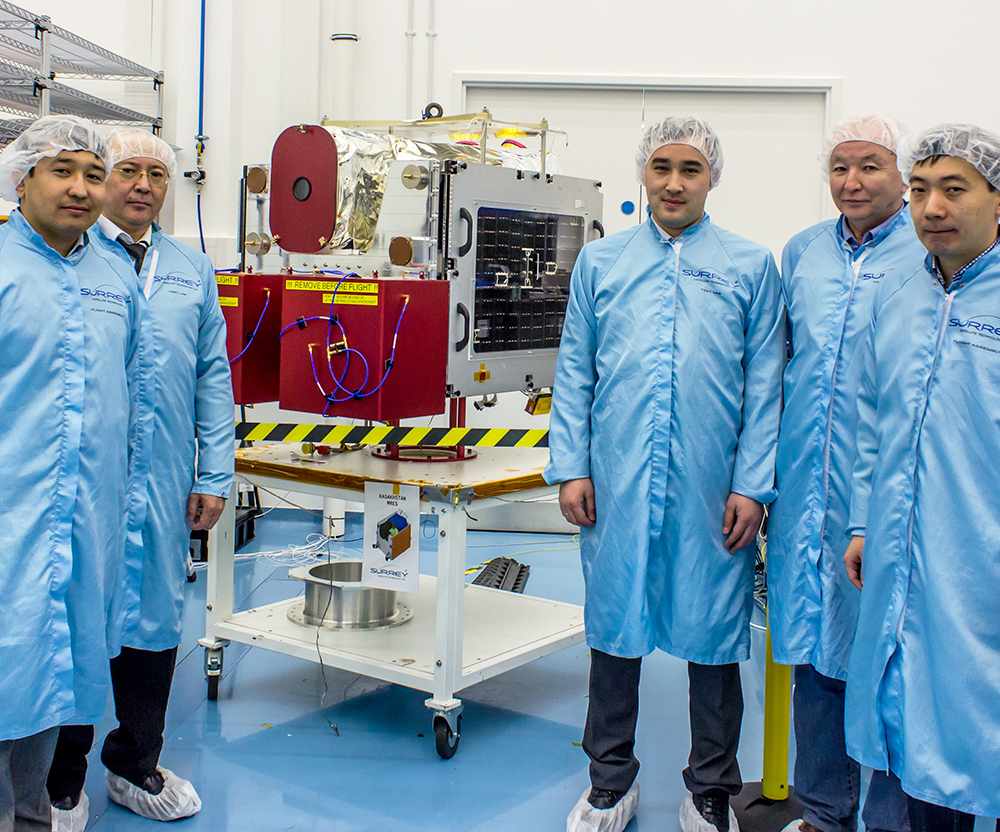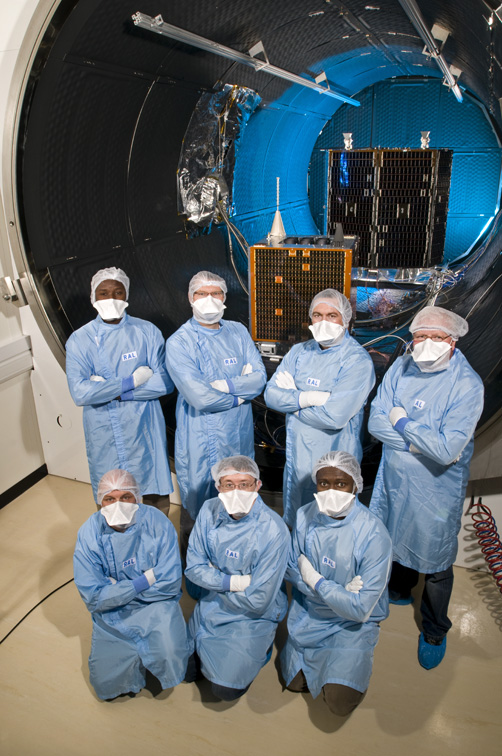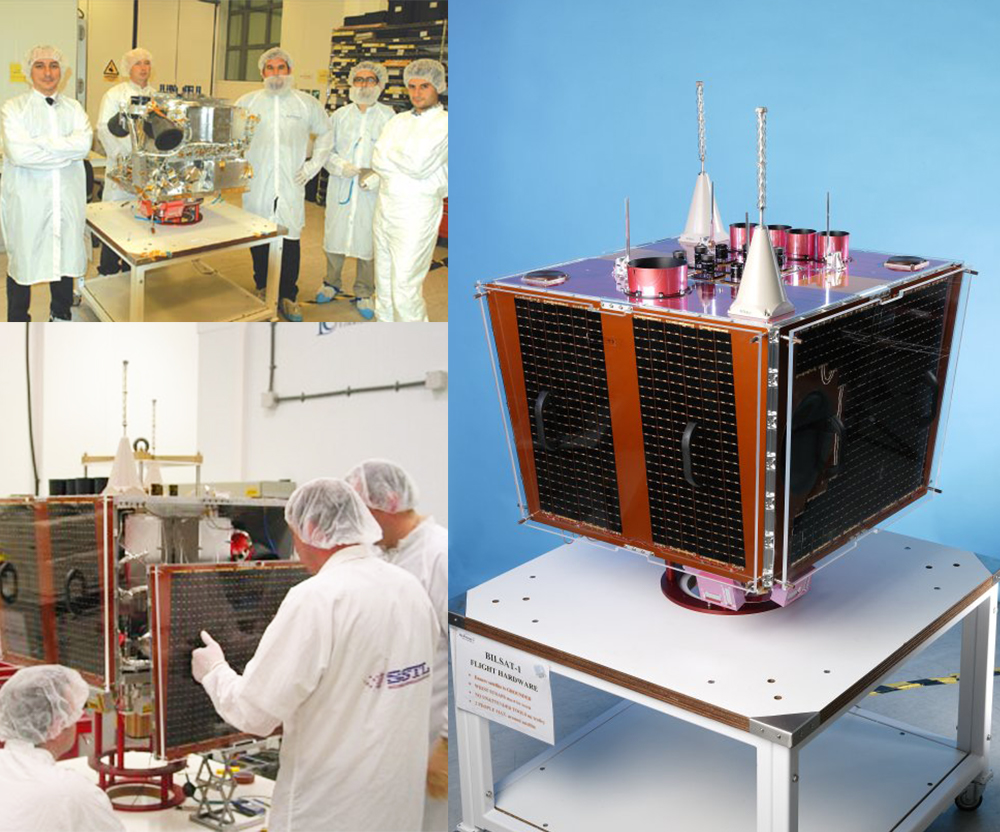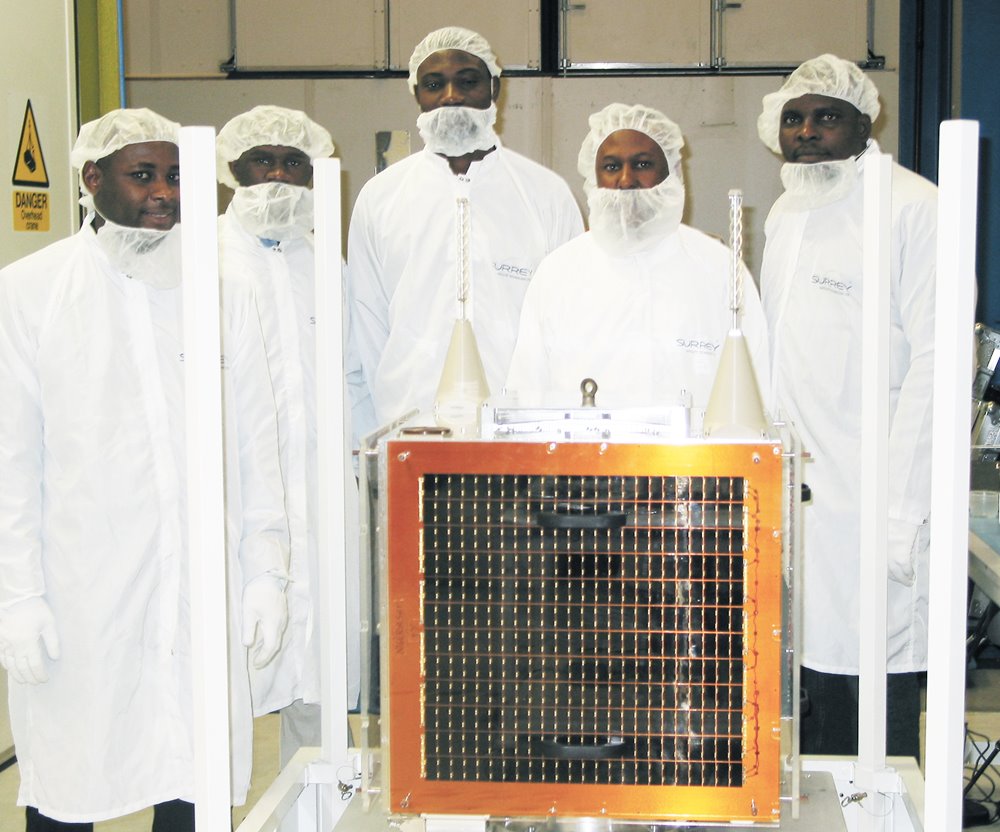AlSat-1B Algeria
The Alsat-1B space mission training programme was the continuation and enhancement of the Alsat-1 programme (2002) and culminated in the launch of the AlSat-1B satellite in 2016 from Sriharikota, India.
18 ASAL engineers took part in an extensive hands-on activities in the UK throughout the whole of the mission, allowing a safe handover of the spacecraft platform for the integration and testing in the new Assembly, Intergration and Test facilities in Algeria.
10 students completed PhD studies at the University of Surrey.
KazEOSAT-2 Kazahkstan
During the KazEOSAT-2 Training Programme KGS engineers obtained the knowledge and skills of spacecraft design, test, Assembly, Integration and Test, launch, operations and exploitation, which laid foundation for further missions, such as KazSTSAT.
The objective of the programme was to design and develop medium resolution images with 6.5m GSD and a 77km swath, KazEOSAT-2, utilised for mapping, agricultural monitoring and resource management with a training programme of 24 Customer Engineers, therefore improving their understanding of the satellite design and performance to support future operations.
NigeriaSat-2 & NigeriaSat-X Nigeria
The NigeriaSAT-2 programme built on the success of the first Nigerian KHTT mission NigeriaSAT-1 and enhanced the satellite capabilities with much improved resolution.
More focus was given on the software and image processing during the training activities.
To apply the knowledge and skills gained from the NigariaSat-1 programme, the Nigerian engineers were tasked with building NigeriaSat-X (an SSTL-100 engineering model). Although initially planned to stay on the ground, it was decided to launch it with NigeriaSAT-2. NigeriaSAT-X was the first indigenously built satellite in a foreign facility.
15 engineers took Masters and PhD courses at the University of Surrey.
BILSAT-1 Turkey
BILSAT-1 was the first indigenous satellite of Turkey. The SSTL Training Programme focused on developing skills to build up the national space capacity and encourage the Turkish space industry to become fully sustainable in the future. It covered all aspects of satellite life-cycle and provided a unique combination of formal and hands-on training to ensure full capability transfer.
The engineering model of the satellite was built and tested by the Customer team and was delivered to TÜBİTAK-UZAY, this provided a baseline model for future Turkish satellites (e.g. RASAT utilised the BILSAT-1 design).
NigeriaSat-1 Nigeria
NigeriaSAT-1 was the first earth observation satellite of Nigeria and a major milestone for Nigerian space sector development.
The programme established an infrastructure in Nigeria, including a Mission Control Centre in Abuja.
The imagery has been used to monitor desertification, flooding, fire, quelea bird invasion and other forms of disaster as part of national programmes and as a member of the Disaster Monitoring Constellation and the International Charter for Space and Major Disasters.
